“Dad loves you because you look like Mom. Mom loves you because you look like Dad. We all love each other. When we are far apart, we miss each other, when we are close, we laugh…” The singing of the “special” children echoed in the small room at the Center for Supporting Victims of Agent Orange and Unfortunate Children in Da Nang, making our hearts ache.
Because, the songs are well-rounded but the children’s voices cannot be round and clear. These are all children who are passionate about each song, clumsy with the dances and letters that sometimes take a whole year to learn. Looking at their cheerful faces, their bright and mischievous smiles, few people know how difficult these children have been through.
The children are of different ages, but most of them have intellectual disabilities, Down syndrome, autism, some have motor disabilities, lower limb paralysis, muscle contractions, etc. The pain of Agent Orange haunts them for life, making their already difficult living conditions even more difficult.
At an innocent age, Mai Thi My Thuan (14 years old) has to endure indescribable pain due to the effects of Agent Orange on her body. At first glance, no one would think that she is carrying a terrible disease.
Thuan’s situation is extremely difficult, the family has many children, the parents work hard all year round as construction workers and porters to make a living. Fortunately, the Center for Supporting Victims of Agent Orange and Unfortunate Children in Da Nang is like a “lifebuoy” that sows hope and gives him and other children the strength to rise up and integrate into the community.
“I have been at the center for 5 years. Here, I not only learn knowledge and culture, but the teachers also create conditions for me to learn the craft of making incense. I hope I will have a job in the future to help my parents,” Thuan said.
For the past 18 years, the Center for Supporting Agent Orange Victims and Disadvantaged Children in Da Nang (facility 1 at 15 Nguyen Van Hue, Thanh Khe district and facility 2 in Phuoc Hung village, Hoa Nhon commune, Hoa Vang district) has been nurturing, caring for, rehabilitating, teaching culture, career guidance, and vocational training for 100 children affected by Agent Orange and children in especially difficult circumstances in Hoa Vang district and neighboring areas.
In addition to learning cultural knowledge, the children are also cared for and nurtured attentively by the center, and receive timely support in case of illness. The care, transportation, and meals for the children at the center are guaranteed to be safe, meeting nutritional needs and food hygiene and safety.
All children are taught culture and some basic skills such as: embroidery, sewing, making incense, beading, flower making, electromechanics, electronics... The entire operating budget of the center comes from projects implemented to support the center and social sponsorship sources, contributions from philanthropists and social charity organizations.
In addition, children are assessed for their level of disability and learning ability to be classified into appropriateeducational classes for gradual progress. Every year, the center cooperates with associations and organizations to organize entertainment, recreation, and outdoor activities to help children be happy, optimistic, and more determined to succeed.
The center always effectively maintains models and playgrounds for children with many activities such as: cultural exchanges, useful sports and physical activities, physical therapy... Many children develop their talents and strengths so that the center can nurture them to participate in sports and cultural competitions at all levels, meeting the wishes and needs of the victims' families.
In particular, adults are supported to connect with companies, businesses and individuals outside to find jobs and increase their family's income.
According to Mr. Nguyen Van An, Chairman of the Association of Agent Orange/dioxin Victims of Da Nang City , currently, the city has over 5,000 people infected or suspected of being infected with Agent Orange/dioxin, of which nearly 1,000 are victims in the second and third generations; many families have 2-3 victims affected by the consequences of Agent Orange/dioxin.
Most of the victims' families are in very difficult circumstances, always having to deal with illness, medicine, and physical and mental pain, both for the victims themselves and their family members.
"Over the past time, the center has always received attention and support from many agencies, units, businesses, benefactors, and philanthropists inside and outside the city to build and expand cultural classrooms, vocational training, concrete roads, and livestock areas, and increase production. Since then, the center's activities have been increasingly expanded and developed. At the same time, the efforts of teachers and staff at the center have helped children equip themselves with social life skills, and have the conditions to integrate with their families and the community," Mr. An shared.
Having worked at the Center for Supporting Agent Orange Victims and Disadvantaged Children in Hoa Nhon, Hoa Vang District for nearly 10 years, every morning, Ms. Nguyen Thi Lan (55 years old) and her motorbike travel nearly 10km from home to the center to start her work.
Ms. Lan confided that at the center, sometimes she is a skillful chef who cooks delicious meals for the children, sometimes she is a second mother, nurturing, comforting, and lulling the children to sleep. Sometimes she is a teacher who teaches the children to read and write, "holding their hands and showing them how to do things" such as embroidery, making flowers, etc.
Recalling the first days of entering the center, getting acquainted with the work, taking care of the "special" children, Ms. Lan herself cannot help but be filled with unforgettable emotions.
Raising normal children is hard enough, raising children with the after-effects of Agent Orange is even more difficult. Each child here is a world of their own full of mysteries. Some cry and laugh for no reason, some have difficulty moving, some do not know how to express emotions, and are poor at communication…
Therefore, Ms. Lan and her colleagues have to assign roles, teach the children each letter and basic communication rules such as: greeting adults, thank you, sorry... This seems simple, but to be able to do so is a miracle for the children's lives. Because the time for them to memorize the lesson and shape their behavior can take up to months, even years.
“We are determined to teach them how to read, write, and know basic manners, which will help them broaden their minds and make them realize that they can also study and work like other children,” Ms. Lan shared.
The work is difficult and the salary is low, so many times Ms. Lan thought about giving up, but looking at the children's clear eyes and innocent laughter has kept her at the center until today.
“There was a day when I was sick and had to stay home. When I returned to work, the children ran to hug me, asked about my health and said they missed me. At that time, I was extremely surprised. It was the children who gave me a more meaningful life than what I could do for them. I love their smiles, their cries and even their shortcomings. I am also happy because I have contributed a small part in their growth,” Lan confided.
Saying that, Ms. Lan's eyes lit up with confidence: "During this time, the center has never stopped laughing, every day the children cheer innocently, regardless of the disadvantages surrounding them out there."
Coming next to the girl who was making incense, Ms. Nguyen Thi Kim Yen (55 years old) said: "When she entered the center, this girl did not interact with anyone, but now she is more active, knows how to sing and joke, and especially learns how to make incense quite quickly from the teachers."
Having been with the center for 17 years, Ms. Nguyen Thi Kim Yen said that most of the children who come here come from very poor families, so it is difficult for their families to take good care of them, as everyone is working day and night to earn a living. Here, the children get to eat, play, read and write, and learn life skills without their families having to spend a single penny.
Ms. Yen calls this a special “school” because here the teachers do not have pre-prepared lesson plans, do not wear sparkling ao dai when coming to class, each person has many tasks, taking turns taking care of, cooking for, and teaching the children. The classes are not divided by age but depend on the personality and characteristics of each child to have different methods of education, care, and training.
Ms. Yen believes that teaching these special children is like being a ceramic artist, sometimes being firm, sometimes being gentle, but above all, cherishing and sending love to them. Only then will they open their hearts and ease their illness.
“I still remember clearly, when I was working at the Center for Supporting Agent Orange Victims and Unfortunate Children in Da Nang, branch 1, the student I taught always came to the center on time. But that day, when it was time to go to class and I didn’t see her, I started to feel restless. Who would have thought that a moment later she would appear, drenched in sweat, holding a flower in her hand and saying that she was walking to buy flowers for her teacher on November 20th. At that moment, I was speechless with emotion,” Ms. Yen recalled with a choked voice.
According to Ms. Yen, any parent when giving birth to a child wants their child to be healthy and whole. However, in this life, not everyone is so lucky.
“Children born, whether healthy or disabled, are precious gems given by God. Besides the family, I think I will try to polish them so that they become brighter and more precious,” said Ms. Yen.
The war is over, but the pain, loss, and legacy of war are still deeply imprinted on this land. More than half a century has passed, the wound called Agent Orange is still there and the victims of this pain still have to suffer misfortune and suffering. Therefore, the joint efforts of the entire political system and the whole society not only directly help and care for the victims but also create confidence and determination for many people to strive to rise up in life, overcome fate, and gradually improve their lives and those of their families.
WATER
Source


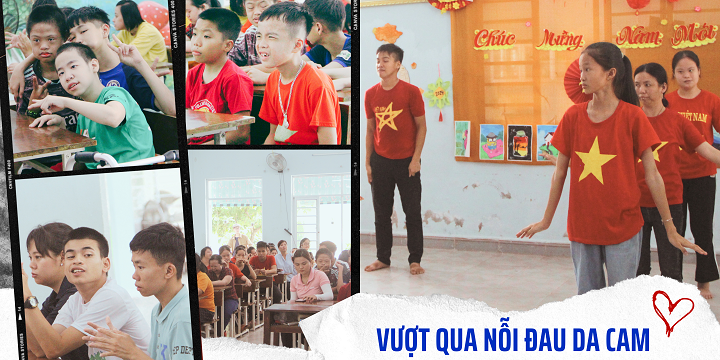

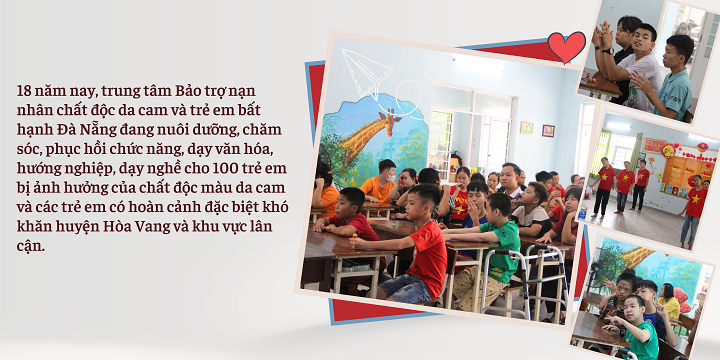
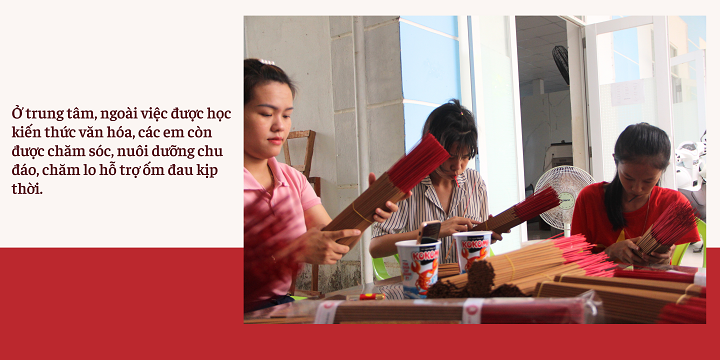

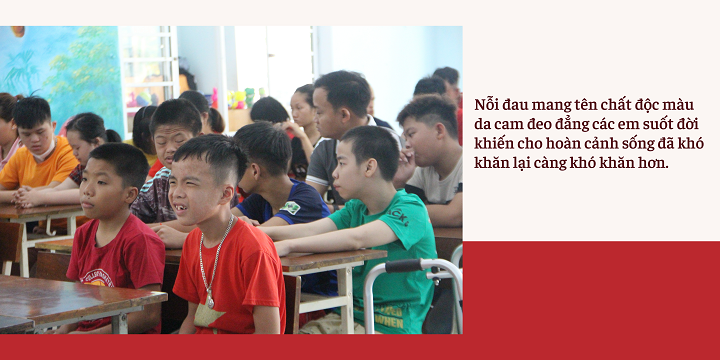
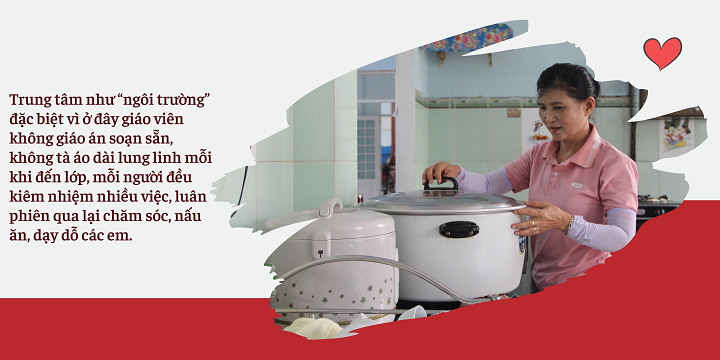
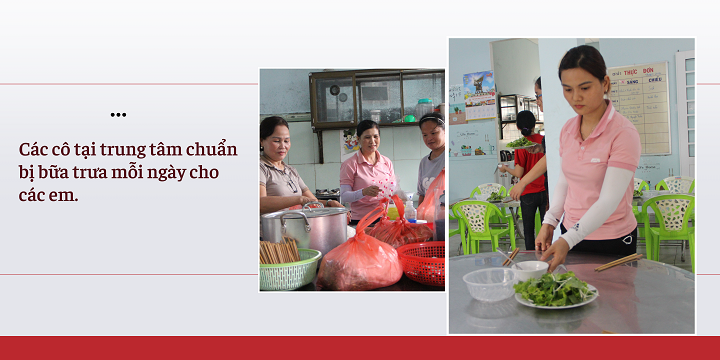
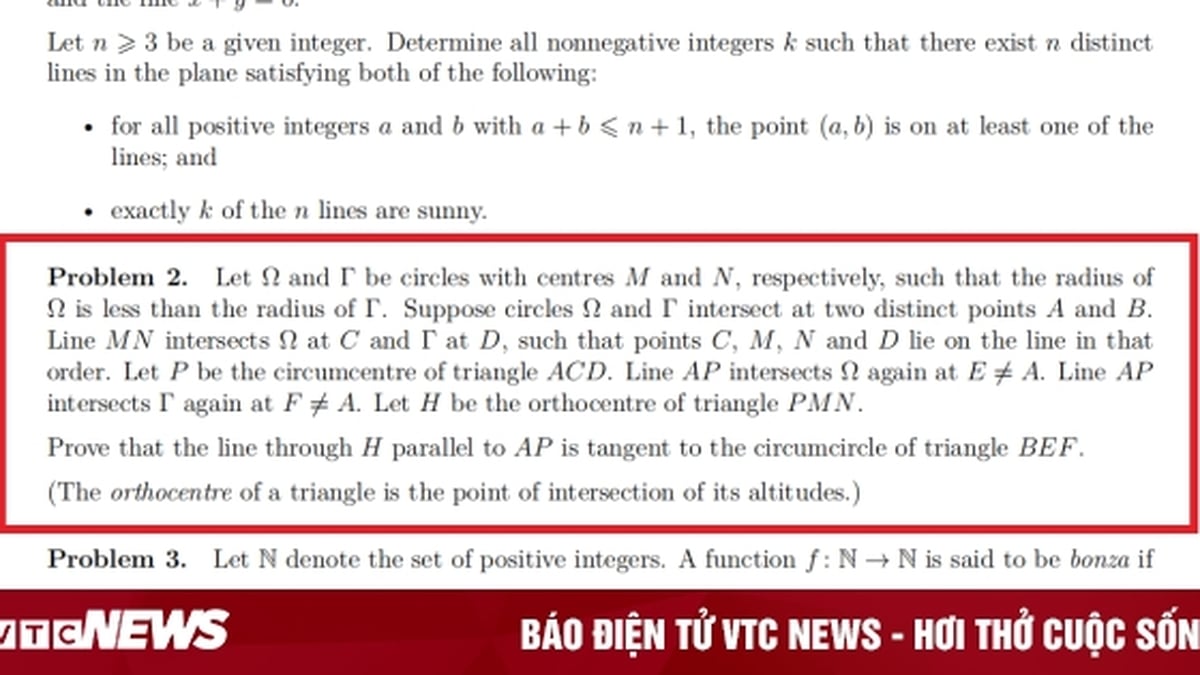
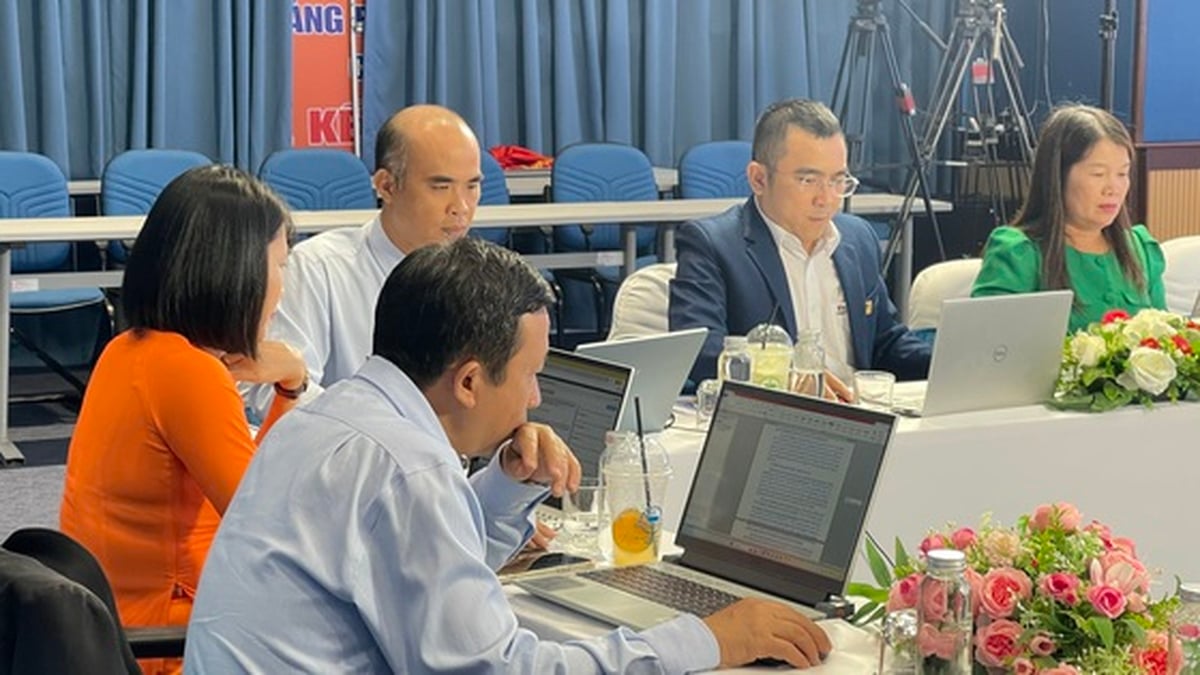
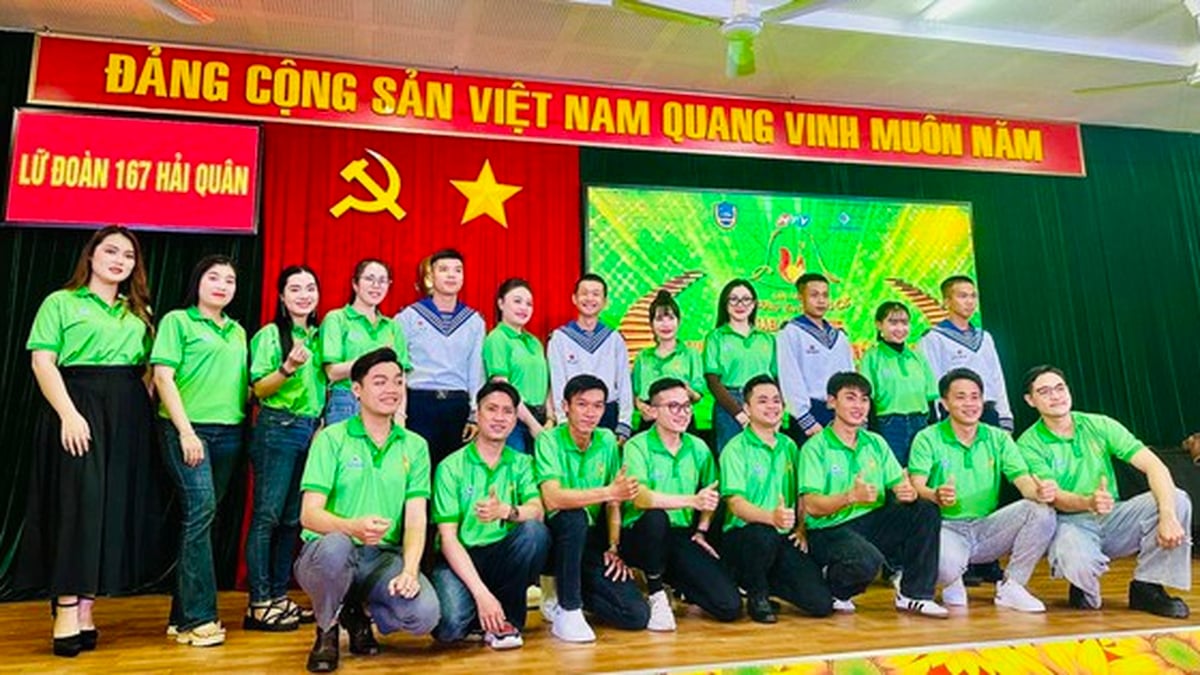
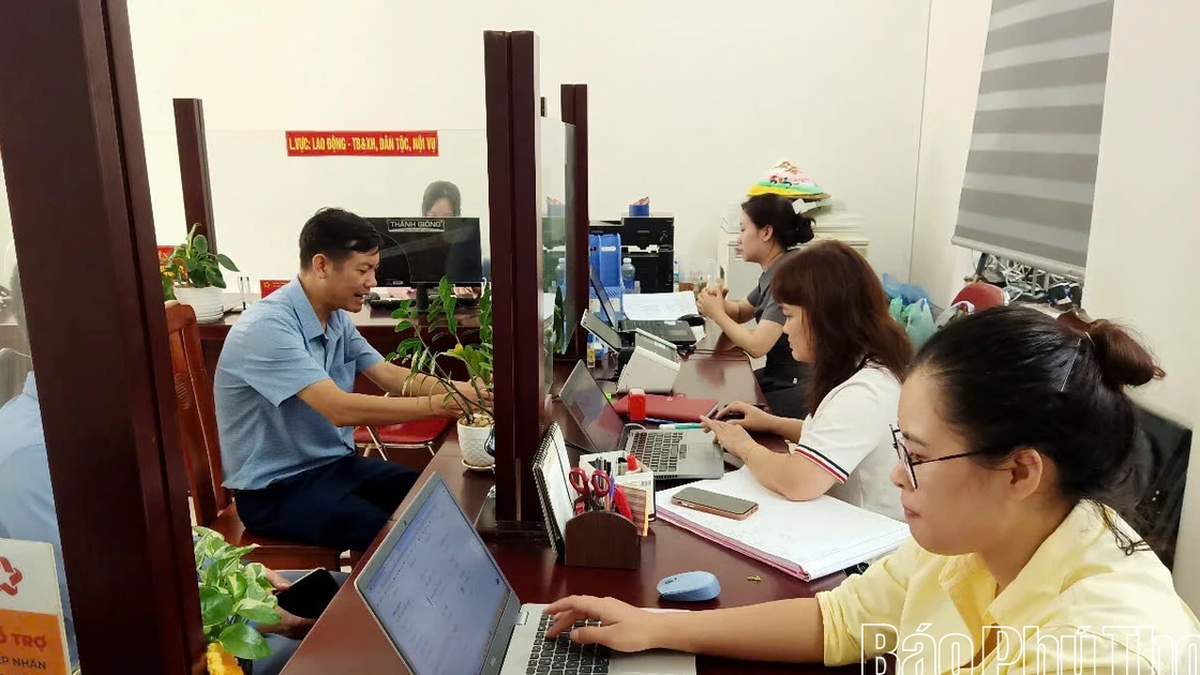
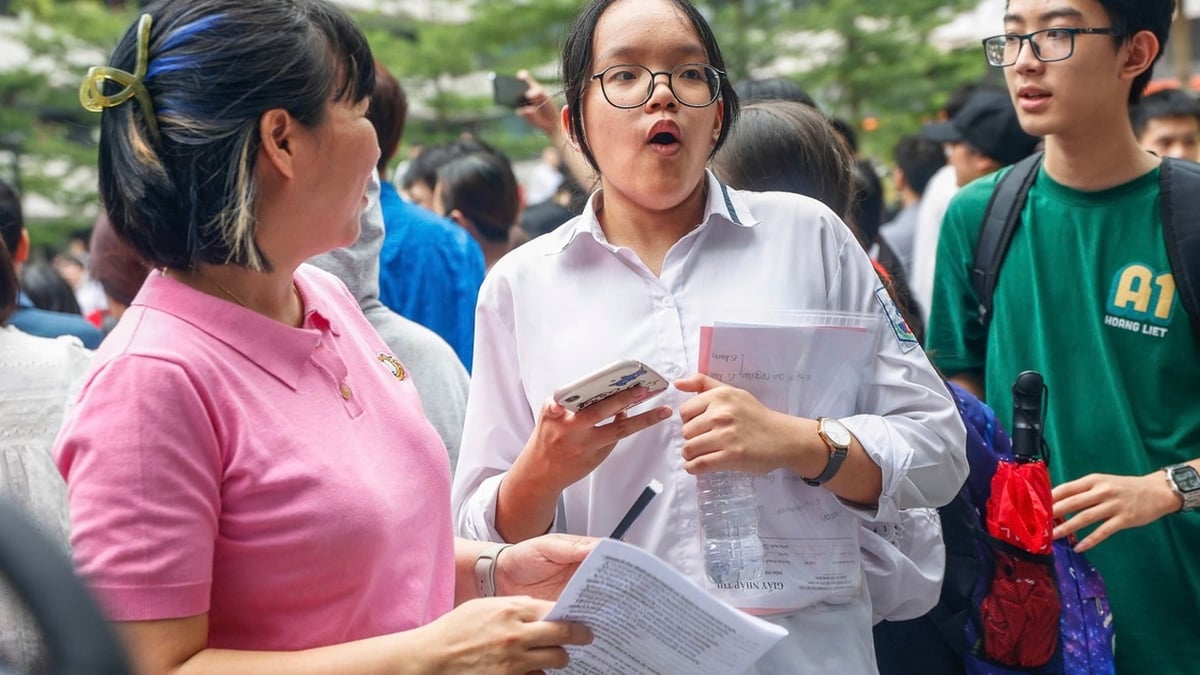

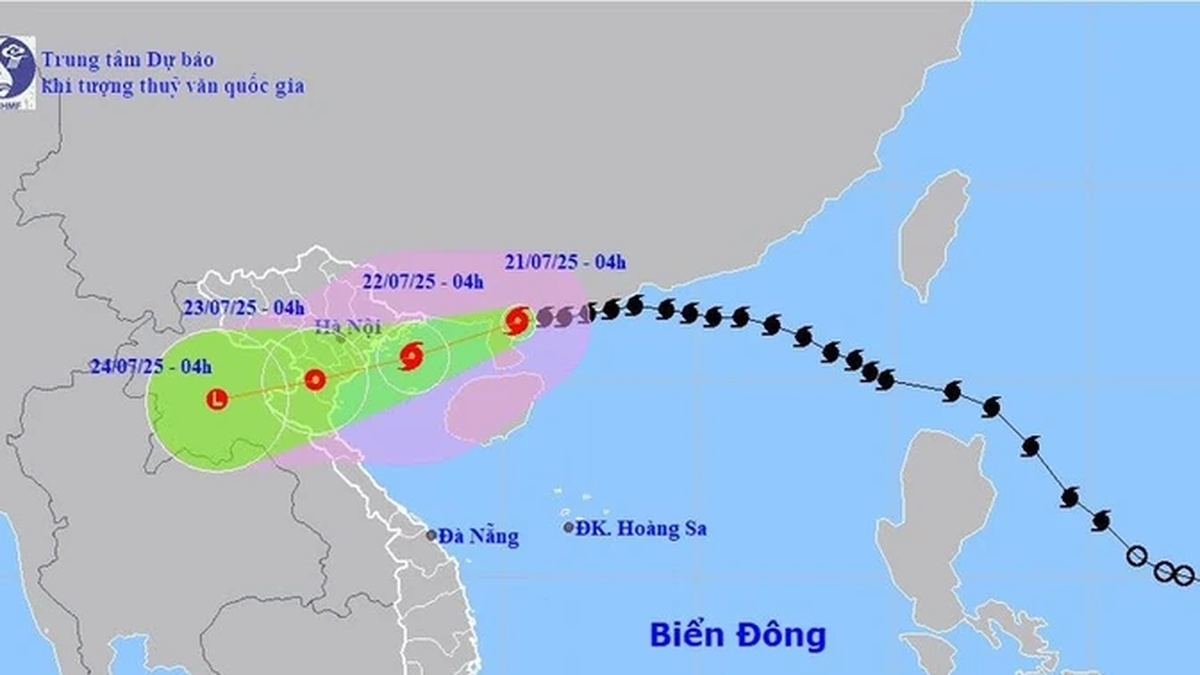
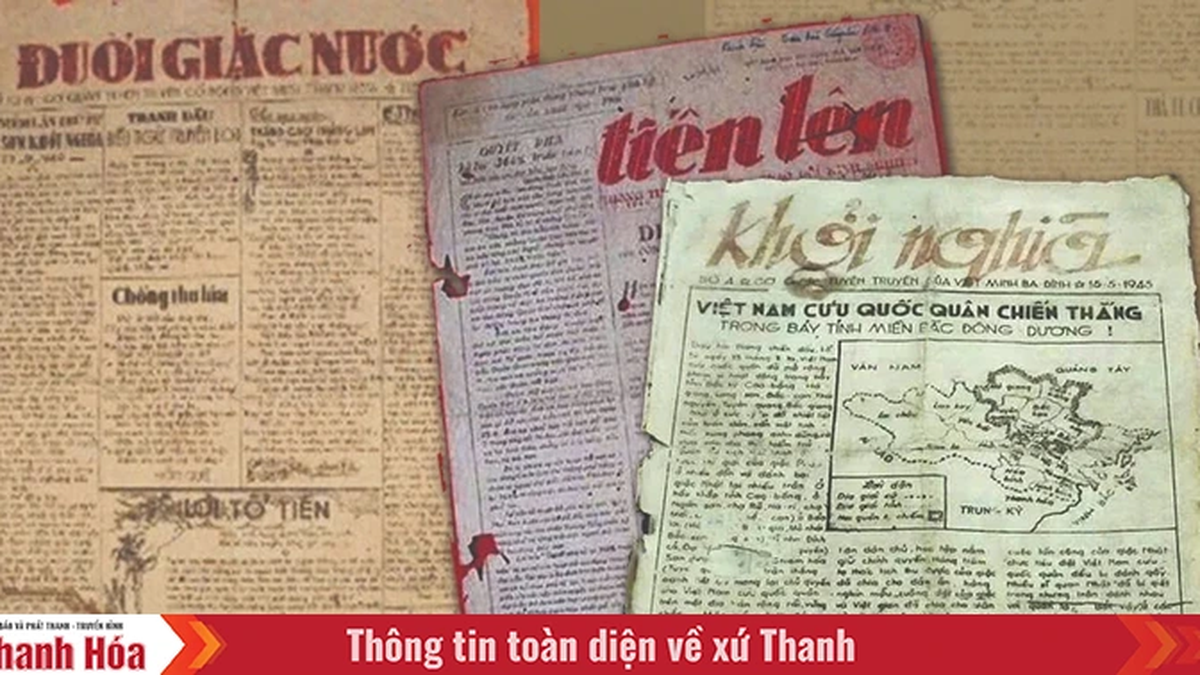
















![[Photo] National Assembly Chairman Tran Thanh Man visits Vietnamese Heroic Mother Ta Thi Tran](https://vphoto.vietnam.vn/thumb/1200x675/vietnam/resource/IMAGE/2025/7/20/765c0bd057dd44ad83ab89fe0255b783)
































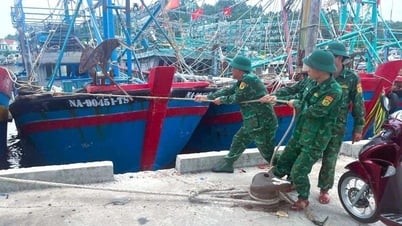
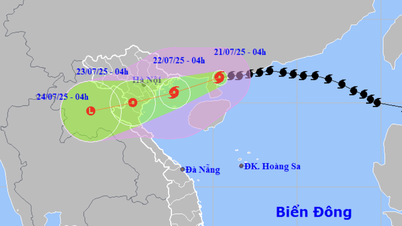
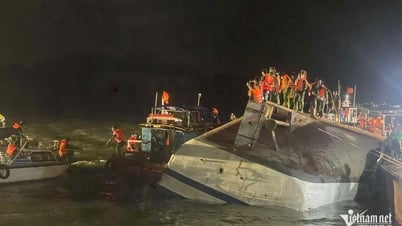
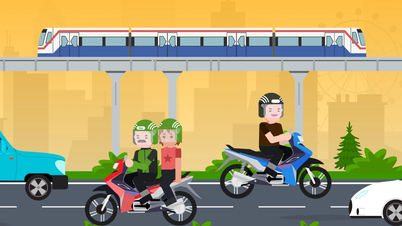


































Comment (0)